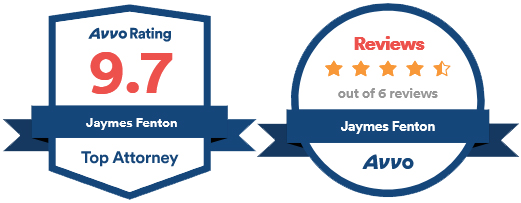Juvenile Crimes: What Parents Need to Know About the Legal Process
 As a parent, facing the reality that your child may be involved in the legal system is overwhelming and emotional. Understanding juvenile crimes and how the legal process works is the first step to ensuring your child receives the best possible support. Here’s a comprehensive guide to help you through this challenging time.
As a parent, facing the reality that your child may be involved in the legal system is overwhelming and emotional. Understanding juvenile crimes and how the legal process works is the first step to ensuring your child receives the best possible support. Here’s a comprehensive guide to help you through this challenging time.
Jump to article sections:
- Understanding Juvenile Crimes and How They Differ from Adult Offenses
- What Happens When a Juvenile Is Arrested?
- Juvenile Rights During Legal Proceedings
- The Role of Parents in the Juvenile Legal Process
- Understanding the Juvenile Court Process
- Potential Penalties for Juvenile Offenses
- Can Juvenile Records Be Expunged?
- The Role of a Criminal Defense Lawyer in Juvenile Cases
- The Importance of Early Legal Intervention
1. Understanding Juvenile Crimes and How They Differ from Adult Offenses
The juvenile justice system is distinct from the adult justice system because it focuses on rehabilitation rather than punishment. Juvenile crimes typically involve individuals under 18 and can range from minor offenses like vandalism or trespassing to more serious crimes such as theft, drug possession, or assault. Unlike adult offenders, juveniles are treated with the goal of correcting behavior to prevent recurring issues.
The laws vary by state, and in some cases, more severe crimes could move from the juvenile system to the adult system. This unpredictability makes understanding the process and securing experienced legal counsel crucial.
In Wisconsin, for example, a child who commits an offense before the age of 10 is exempt from criminal prosecution. However, juveniles between the ages of 10 and 16 can still face consequences such as community service or counseling. Those aged 17 or older may be tried in adult court.
2. What Happens When a Juvenile Is Arrested?
When a minor is arrested, the process can feel confusing and frightening for both the child and the parent. Typically, after an arrest, the juvenile may be detained in a juvenile detention center or released to their parents, depending on the circumstances and severity of the offense.
Parents will usually be notified quickly, and it’s critical to remain calm and focus on the next steps. Contact an attorney right away and avoid allowing your child to answer questions from law enforcement without legal representation. Early legal intervention is essential at this stage to protect your child’s rights and future.For more on this, read our guide “ The Step by Step Guide to a Criminal Defense Lawyer.”
3. Juvenile Rights During Legal Proceedings
Every minor involved in the justice system has specific rights, including the right to remain silent, protection against self-incrimination, and the right to legal representation. Ensuring these rights are upheld can make a significant difference in their case.
Juveniles also have privacy rights, meaning aspects of their case are typically shielded from public view. This helps minimize the long-term impact of legal proceedings on their personal and professional life as they grow older.
4. The Role of Parents in the Juvenile Legal Process
Your role as a parent is vital in advocating for your child. Open lines of communication with your child and their attorney can help you understand the legal process and develop an effective defense strategy. Attend all legal hearings, ask questions, and stay focused on your child’s needs during this time.
It’s also essential to maintain trust with your child. They’ll likely feel scared or ashamed, and ensuring they know you’re on their side can make the process less isolating for them.
5. Understanding the Juvenile Court Process
The juvenile court process often begins with an intake hearing to determine if the case will proceed to juvenile court, be dismissed, or be diverted to a corrective program. If the case moves forward, there may be additional hearings, including adjudication, which is like a trial in adult court, and a disposition hearing where the court decides on appropriate penalties.
Unlike adult court proceedings, juvenile cases are typically informal and aim to arrive at resolutions that encourage growth and accountability rather than punishment.
6. Potential Penalties for Juvenile Offenses
Penalties for juvenile offenses can vary widely and may include diversion programs, probation, community service, fines, or even detention in a juvenile facility. Factors like the child’s age, prior record, and the severity of the offense all influence the outcome.
Alternative interventions, such as counseling programs or rehab, may be considered to address underlying issues that contributed to the crime. Programs like these focus on healing and understanding, giving teens the opportunity to change direction without long-term legal consequences.
7. Can Juvenile Records Be Expunged?
One of the most common questions parents have is whether their child’s record can be cleared. The good news is that many juvenile records can be expunged after specific conditions are met, such as completing probation or reaching adulthood.
Expungement is important because it removes barriers to opportunities, such as education, employment, and housing, that a criminal record might create. Consulting with a criminal defense lawyer can help guide parents through the process of expunging their child’s record.
8. The Role of a Criminal Defense Lawyer in Juvenile Cases
 Navigating the juvenile legal system can be complex, and having an experienced criminal defense lawyer who specializes in juvenile law is invaluable. At Fenton Law Office in MIlwaukee, we understand the stakes and dedicate ourselves to protecting your child’s future. We carefully examine each detail of your case, explore alternative resolutions, and advocate for the best outcomes possible.
Navigating the juvenile legal system can be complex, and having an experienced criminal defense lawyer who specializes in juvenile law is invaluable. At Fenton Law Office in MIlwaukee, we understand the stakes and dedicate ourselves to protecting your child’s future. We carefully examine each detail of your case, explore alternative resolutions, and advocate for the best outcomes possible.
9. The Importance of Early Legal Intervention
Acting quickly after your child is accused of a crime can significantly impact the result. Early intervention allows attorneys to gather evidence, challenge improper procedures, and seek diversion programs or alternative resolutions. Waiting too long to act can limit your options, so it’s essential to partner with a lawyer as soon as possible.
By being proactive, you can minimize potential consequences and give your child the best chance of avoiding a life impacted by a criminal record.
For the assistance of a Milwaukee criminal defense attorney, contact us at Fenton Law Office. We’re here to support you and your family through this challenging time.

By Attorney Jay Fenton, Owner of Fenton Law Office
Jay Fenton is a top-rated criminal defense attorney in Milwaukee who goes above and beyond for his clients. He has successfully secured favorable outcomes in countless cases, from negotiating plea agreements to filing pre-trial motions and managing complex appeals. Attorney Fenton also has had tremendous success achieving not-guilty verdicts at trial. His dedication and aggressiveness make him one of the best attorneys around.




